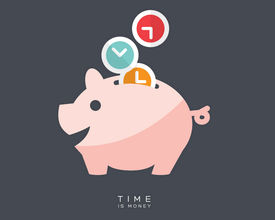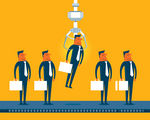Most organizers would agree that when it comes to planning events, time and energy are the scarcest resources. From juggling multiple tasks to facing unexpected situations, event professionals usually end up feeling burnt out with almost no downtime (not to mention zero family time).
There are several reasons why. First, planning and running an event requires a great deal of mental energy that is mostly wasted on managing the incredible multitude of details. It’s like trying to put together a 1,000-piece all-white puzzle. Second, our work depends on event suppliers and team members, meaning that constant communication is required. This can be both time-consuming and draining, especially when there’s a lack of understanding between parties. Third, our area of expertise is extensive, encompassing everything from webpage design to event marketing strategy, and we have to take care of every event-related aspect.
However, in most cases, the root of our problems goes deeper than we think. By having so many different tasks to accomplish all at the same time, our minds are in a million places at once.
Think about it: Let’s say that you arrive at work in the morning, and after getting caught up on your email for an hour, you start update the event website. Suddenly a new email notification pops up. You decide to check the message, and write a reply (although it’s not important). Meanwhile, a colleague comes to your desk to ask your advice on the event brochure design. A little bit later, you go back to your computer and log into your Facebook account. After scrolling for 10 minutes, you remember about the event website and decide to leave it for tomorrow, because now you have to prepare for a meeting. Does this sound like a familiar workday to you?
Well, guess what? This is exactly why we, as event planners, are wasting more time and energy than we should. The amount of tasks we have to perform plus the number of 'fires' we must extinguish concurrently reduces our attention span, leading to a lower efficiency.
According to Cal Newport, author and associate professor of Computer Science at Georgetown University, going back and forth between tasks takes a toll on our attention span, and multiple distractions limit our productivity and reduces our brain’s ability to focus on important cognitive tasks.
Considering this, what can you do to save time and energy while becoming more efficient? These tips should help:
Tip 1. Stop task-switching
As Newport argues, "Constant switching can be understood analogously as weakening the mental muscles responsible for organizing the many sources vying for your attention." How often are you multitasking? Do you usually leave one task half finished to start another or to talk to a colleague? Maybe it’s time to change that. Focus on one thing at a time until you get it done. This will help you focus your attention, and gradually you’ll discover that some tasks take less time and effort than you thought.
Tip 2. Limit your time on email and social media
It takes extreme willpower to not check your social media. It also takes too much time (and energy) to be always connected. Could you challenge yourself to restrict your social media time to 15 minutes per day? This strategy will help you maintain your focus on more important, work-related things. As far as managing email goes, it’s really not practical to limit your time on answering emails. As an event professional, there are days when all you do is solve problems via email. However, if you‘re focused on other tasks and there’s no major urgency, schedule a specific hour when you’ll focus only on replying to messages.
Tip 3. Schedule meetings in the afternoon
We all know how long and tiring meetings can be. Sometimes, after those kinds of meetings are over, you may feel too drained to work, so you indulge in procrastination. Sometimes, after an intense morning meeting, you may find yourself unable to focus.
That’s why it’s a good idea to dedicate mornings to completing the tasks on your to-do list. Then, you can block the entire afternoon for different meetings with team members, event suppliers, or clients. You won’t be as fresh in the afternoon as you’d be in the morning, but you’ll have enough energy to run an efficient meeting, especially knowing that you’ve already accomplished your tasks for the day.
Tip 4. Limit unexpected interruptions
Open workspaces can be inspiring and empowering, but unexpected interruptions may happen, especially when someone wants to share some news or ask for your advice. This will weaken your focus and delay your tasks. After all, as author David Allen highlights in one of his eventplanner.tv interviews, "You can only do one thing at a time."
These unexpected interruptions will keep you from accomplishing your work, wasting time and energy. That’s why, whenever possible, let others know that you’re working on something at the moment, but you’ll be able to help later. You can even allocate a specific hour when you can interrupt your work to see if someone else needs your help or attention (with the exception of unexpected crises or emergencies).
Call to action
Similar to willpower, attention is a limited resource that influences your daily efficiency and productivity. So if you want to save time and energy when planning your next event, learn how to manage both. Start by reducing the amount of distractions. Limit the time you spend on social media or answering low-priority emails. Also, create an interruption-free space for yourself where you can focus and work for as long as you can without any interruptions. Schedule your meetings in the afternoon and keep mornings free for tasks that require your absolute focus. Finally, try to stop bouncing back and forth between tasks. This will help your brain flex the attention 'muscle', and you’ll be able to work better, saving time and energy.








